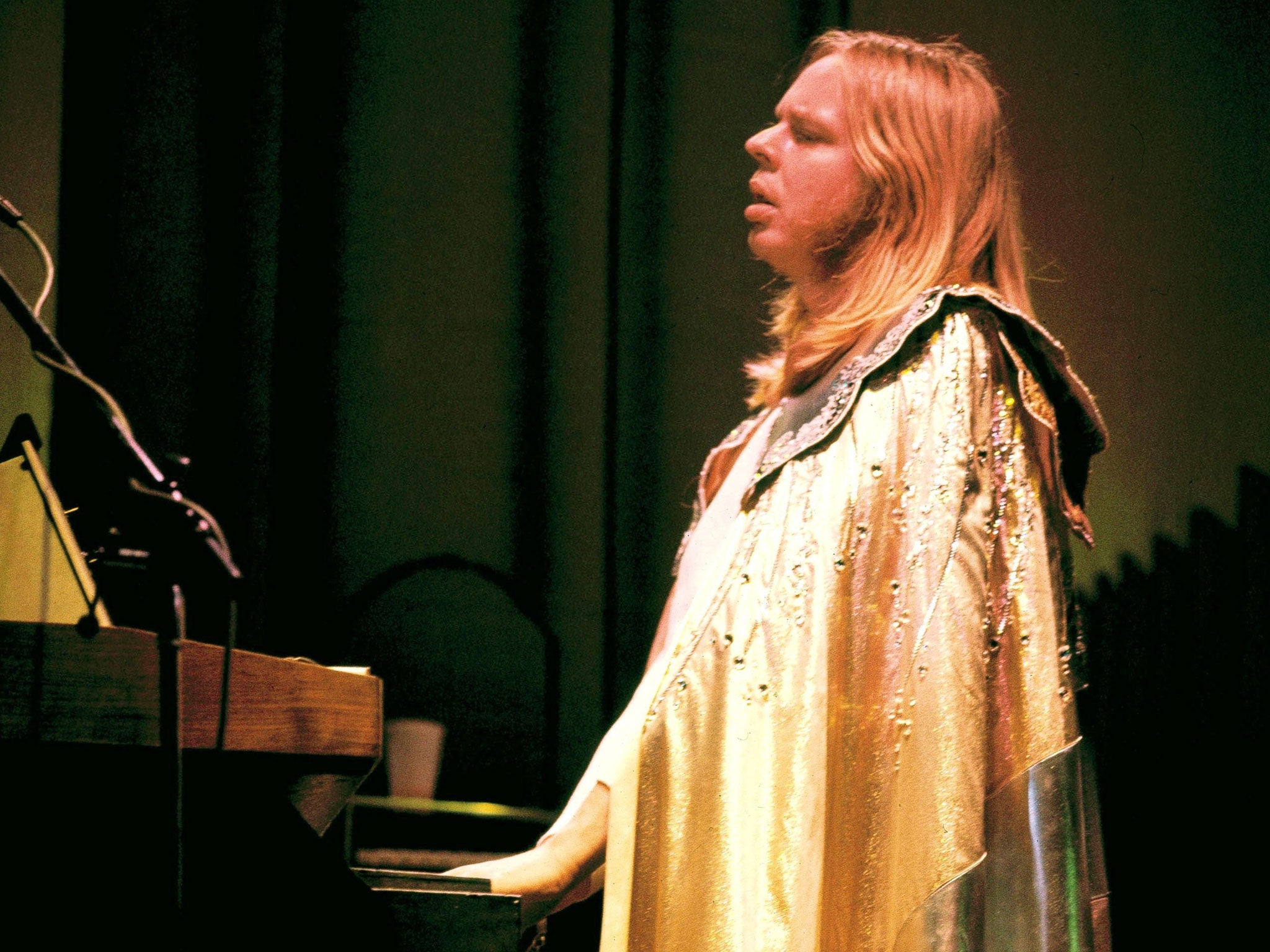Yes, prog-rock of the Seventies is back, says Rick Wakeman

Your support helps us to tell the story
From reproductive rights to climate change to Big Tech, The Independent is on the ground when the story is developing. Whether it's investigating the financials of Elon Musk's pro-Trump PAC or producing our latest documentary, 'The A Word', which shines a light on the American women fighting for reproductive rights, we know how important it is to parse out the facts from the messaging.
At such a critical moment in US history, we need reporters on the ground. Your donation allows us to keep sending journalists to speak to both sides of the story.
The Independent is trusted by Americans across the entire political spectrum. And unlike many other quality news outlets, we choose not to lock Americans out of our reporting and analysis with paywalls. We believe quality journalism should be available to everyone, paid for by those who can afford it.
Your support makes all the difference.Clubbers who have made "Get Lucky" this summer's dance-floor anthem will be shocked to hear that Daft Punk aren't the robot-friendly sound of the future – but revivalists of Seventies progressive rock, once the most derided of genres.
Prog, a bombastic mutation of rock and classical genres typically performed by highly skilled musicians in outrageous capes, could once be heard echoing from student halls and stadiums across the land. Supergroup Emerson, Lake & Palmer sold 40 million copies of their symphonic rock while Genesis, Pink Floyd, Yes and Rush became prog's most commercially savvy flag-bearers.
In the end it was punk that swept away those highly designed concept albums with their epic or medieval themes and ostentatious, lengthy, and, some would say, self-indulgent displays of musical proficiency.
But now prog is back, freed from rock's closet of shame, and claiming such favourites as Radiohead, Elbow and Muse as acolytes. A new wave of bands, such as Scottish electro-prog explorers North Atlantic Oscillation, is also finding favour.
Meanwhile, Rick Wakeman, keyboardist with Yes, is about to capitalise on the revival with a new multimedia touring version of his 1974 landmark solo album, Journey to the Centre of the Earth. Wakeman says Daft Punk, the French techno duo responsible for the million-selling single "Get Lucky", are as prog as they come. Inspired by Pink Floyd's album Dark Side of the Moon, the band employed live musicians on vintage synthesisers for their album Random Access Memories, which included one nine-minute song.
"They are going back to the prog ethos that there are no rules, no one is going to stop you experimenting. You aren't restricted to the three-minute single any more," said Wakeman. "That goes back to the early days of prog."
He added: "I know Radiohead say they aren't prog but, sorry chaps, you are, and it's brilliant."
Wakeman enjoyed huge success with solo albums based on the stories of Henry VIII and King Arthur as well as selling 15 million copies of Journey...
"We've come out of a period in the 1980s and 1990s where people were very blinkered about what was acceptable. Prog was the porn of the music industry, you bought an album under the counter in a brown paper bag," said the keyboardist, who is to celebrate the prog resurgence by collaborating with Roger Dean, designer of Yes's famous fantasy album sleeves, on a UK tour next year, to coincide with the 150th anniversary of Jules Verne's Voyage au Centre de la Terre.
After piecing together the original conductor's score of Journey... which had been lost for 40 years, Wakeman and a symphony orchestra will perform it in full for the first time since it topped the charts.
"I received a crate from Australia and I found the score at the bottom, said Wakeman, 64. "It was waterlogged and I thought it unsalvageable. I took it to my conductor Guy Protheroe and, after a year's work, he was able to recover the music and digitise it."
Wakeman also thanks David Bowie for Journey's success. Bowie told him, "Follow your dream. Don't listen to people who don't know a hatchet from a crotchet."
He added: "The record company didn't want to release it, I got massively into debt and had a letter from Express Dairies over my milk bill. But it sold millions, America embraced it. And I paid my milk bill."
Join our commenting forum
Join thought-provoking conversations, follow other Independent readers and see their replies
Comments